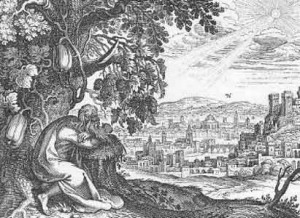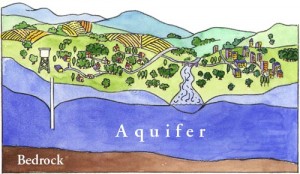====================
A sermon offered, on Christmas Eve, December 24, 2014, to the people of St. Paul’s Episcopal Church, Medina, Ohio, where Fr. Funston is rector.
(The lessons for the day were Isaiah 9:2-7; Psalm 96; Titus 2:11-14; and Luke 2:1-20. These lessons can be read at The Lectionary Page.)
====================
 Tonight we gather once again to celebrate a memory, the memory of the birth of Christ, the Christ who is about to be born again as he is every year. We don’t really know if he was born at this time of the year; in fact, most scholars agree he wasn’t. But that doesn’t matter. It isn’t the date that we celebrate; it is his birth, then and in our lives each time we remember.
Tonight we gather once again to celebrate a memory, the memory of the birth of Christ, the Christ who is about to be born again as he is every year. We don’t really know if he was born at this time of the year; in fact, most scholars agree he wasn’t. But that doesn’t matter. It isn’t the date that we celebrate; it is his birth, then and in our lives each time we remember.
I have mentioned in this pulpit before my memory of a childhood incident in which my brother, clothed in a cowboy outfit he’d received at Christmas, wondered in a neighborhood bar and, when told that the bar did not serve minors, retorted “I’m not a miner; I’m a cowboy!”
I remember that incident as if it was yesterday. I can see that set of cowboy clothes. I know the bar where it occurred. That memory is as clear as clear can be.
But here’s the weird thing about that memory: That incident happened four years before I was born.
I think probably everyone has memories like that, constructed memories, memories which are ours, but are of events which we did not experience; that’s what it is to be a part of a family, of a community. We share the collective memories of the group and make them our own. Celebrating the Nativity each year at this time is like that, a memory and a future we have made our own because we are part of God’s family.
My first real personal memory is also a Christmas memory. The Christmas I was three years old I got a puppy, a dachshund puppy my father named “Baron.” Baron was probably about ten weeks old and what a mess he made of our Christmas! We had Baron for five years, but when my father passed away and my mother decided that we would move to southern California, Baron had to be given away. Still, one always remembers one’s first dog!
So imagine how delighted I was a few days before Thanksgiving when Evelyn and I went shopping at Aldi and I found this! [Holds up stuffed plush toy dachshund dressed in green Christmas attire] A Christmas dachshund! Like a visit from my first Christmas dog. And imagine my further delight when I squeezed his foot and discovered that he plays this Christmas classic:
[Toy plays truncated version of C+C Music Factory’s Everybody Dance Now]
Everybody dance now
Da da da, Da!
Da da da, Da!
Dance till you can’t dance
Till you can’t dance no more
Get on the floor and get warm
Then come back and upside down
Easy now, let me see ya
Move
(Let your mind)
Move
(Put me online)
The music is my life
Okay, so maybe it’s not so much a Christmas classic . . . . But it did remind me of the Great Dance, a classic metaphor for the actions of God, and how that metaphor can help us to understand and enter into the joy of the God’s Incarnation in the Christ-about-to-be-Born.
This is nothing new, of course; the old Cornish Christmas carol portrays the birth of Christ as an invitation to the Dance.
Tomorrow shall be my dancing day;
I would my true love did so chance
To see the legend of my play,
To call my true love to my dance;
Then was I born of a virgin pure,
Of her I took fleshly substance
Thus was I knit to man’s nature
To call my true love to my dance.
Sing, oh! my love, oh! my love, my love, my love,
This have I done for my true love.
The metaphor of the Great Dance portrays the cosmos as rhythmic, trustingly and lovingly attuned to and following the lead of its Creator. The concept of the Great Dance is found throughout human cultures and predates Christianity. It is found in Plato who wrote, “The dance, of all the arts, is the one that most influences the soul. Dancing is divine in its nature and is the gift of the gods.” The Roman poet Lucian wrote of the dance of the heavenly bodies which came into existence at creation. The Hindu God Shiva is called “Lord of the Dance,” and his eternal dance creates, destroys, and recreates all things. The spiritual practices of many tribal cultures involve communal dance. King David, the Second Book of Samuel tells us, “danced before the Lord with all his might” (2 Sam 6:14) as the Ark of the Covenant was brought into Jerusalem. The last of psalms enjoins us to dance:
Praise [God] with the blast of the ram’s-horn; *
praise him with lyre and harp.
Praise him with timbrel and dance . . . .
(Ps 150:3-4a, BCP Version)
In his book To a Dancing God, theologian Sam Keen, wrote that human flesh “has a natural sense of the sacred.” (Harper & Row, 1970, pg 153) When human flesh dances it joins in patterns and takes on memories and dreams of a future that are not originally its own.
Are you a dancer? Do you and your beloved enjoy a turn on the dance floor from time to time? Do you remember what it was like when you were first learning to dance? Tentatively and awkwardly you took your position on the floor, shuffling your feet not knowing where to put them, raising your arms, hands trembling, feeling like an idiot. Where do your hands go? Where do your feet go? Which way should you look? At first, this strange position with arms outstretched in an awkward formal embrace of your partner, your feet oddly placed on the floor, is a position of vulnerability and humility. But eventually, whatever the form you may have been learning – foxtrot, two-step, waltz, tango, whatever it may have been – eventually you learned it; your body learned it; your body with its “natural sense of the sacred” becomes a part of the Great Dance, remembers the steps and moves that were not originally your own.
Those of you who know me well know that for relaxation I like to read science fiction. It was through science fiction that I was introduced to the great Anglican apologist Clive Staples Lewis. Most people become familiar with Lewis because of the Narnia stories and then move on to read The Screwtape Letters and then possibly Lewis’s Christian apologetics such as Mere Christianity or his memoir Surprised by Joy. My first encounter with Lewis was his science fiction trilogy and in that work was where I first read about the Great Dance.
The story of the trilogy centers on an Oxford Don named Elwin Ransom who, in the first book entitled Out of the Silent Planet, voyages to Mars and discovers that Earth is exiled from the rest of the solar system. Ransom learns of and meets angelic beings called eldila who oversee the solar system on behalf of the Creator (who is called “the Old One”). One of these eldila, a being known as the Bent Oyarsa, has turned (as modern Hollywood would put it) “to the Dark Side” and taken control of earth. In the second book, entitled Perelandra, Ransom journeys to Venus. Near the end of the book, Ransom is shown the Great Dance by the eldila. At first, they describe it to him and then he begins to experience it for himself. This is the way Lewis tells it: one of the eldila says to Ransom –
The Great Dance does not wait to be perfect . . . . We speak not of when it will begin. It has begun from before always. There was no time when we did not rejoice before His face as now. The dance which we dance is at the centre and for the dance all things were made.
Others of the eldila speak of the Dance and then Ransom begins to see it for himself. Lewis describes it this way:
And now, by a transition which he did not notice, it seemed that what had begun as speech was turned into sight, or into something that can be remembered only as if it were seeing. He thought he saw the Great Dance. It seemed to be woven out of the intertwining undulation of many cords or bands of light, leaping over and under one another and mutually embraced in arabesques and flower-like subtleties. Each figure as he looked at it became the master-figure or focus of the whole spectacle, by means of which his eye disentangled all else and brought it into unity – only to be itself entangled when he looked to what he had taken for mere marginal decorations and found that there also the same hegemony was claimed, and the claim made good, yet the former pattern not thereby dispossessed but finding in its new subordination a significance greater than that which it had abdicated. He could see also (but the word ‘seeing’ is now plainly inadequate) wherever the ribbons or serpents of light intersected, minute corpuscles of momentary brightness: and he knew somehow that these particles were the secular generalities of which history tells – peoples, institutions, climates of opinion, civilisations, arts, sciences, and the like – ephemeral coruscations that piped their short song and vanished. The ribbons or cords themselves, in which millions of corpuscles lived and died, were things of some different kind. At first he could not say what: But he knew in the end that most of them were individual entities. If so, the time in which the Great Dance proceeds is very unlike time as we know it. Some of the thinner more delicate cords were beings that we call short-lived: flowers and insects, a fruit or a storm of rain, and once (he thought) a wave of the sea. Others were such things as we also think lasting: crystals, rivers, mountains, or even stars. Far above these in girth and luminosity and flashing with colours from beyond our spectrum were the lines of the personal beings, yet as different from one another in splendour as all of them from the previous class. But not all the cords were individuals: some were universal truths or universal qualities. It did not surprise him then to find that these and the persons were both cords and both stood together as against the mere atoms of generality which live and died in the clashing of their streams: but afterwards, when he came back to earth, he wondered. And by now the thing must have passed together out of the region of sight as we understand it. For he says that the whole solid figure of these enamoured and inter-inanimated circlings was suddenly revealed as the mere superficies of a far vaster pattern in four dimensions, and that figure as the boundary of yet others in other worlds: till suddenly as the movement grew yet swifter, the interweaving yet more ecstatic, the relevance of all to all yet more intense, as dimension was added to dimension and that part of him which could reason and remember was dropped farther and farther behind that part of him which saw, even then, at the very zenith of complexity, complexity was eaten up and faded, as a thin white cloud fades into the hard blue burning of the sky, and simplicity beyond all comprehension, ancient and young as spring, illimitable, pellucid, drew him with cords of infinite desire into its own stillness. He went up into such quietness, a privacy, and a freshness that at the very moment when he stood farthest from our ordinary mode of being he had the sense of stripping off encumbrances and awaking from trance, and coming to himself. (Lewis, C.S., Perelandra, Scribner:NYC, 2003, pp. 183-88)
This, then, is the Dance into which the Christ-to-be-Born invites us.
In a book of the Christian apocrypha called The Acts of St. John, we are told that after the Last Supper Jesus came down from the table and danced a ring dance with his twelve disciples. The picture here is of the disciples united with their Rabbi in the mystery of atonement. Sounding through the dance is the voice of Christ, the Logos, the original Word that was there at the beginning, that came to dwell among us, that will be there at the end, imparting the essence of divine mystery through the Great Dance described so brilliantly by Lewis.
Perhaps because of that dance scene in The Acts of St. John, Christian writers, musicians and poets have repeatedly used the image of the dance. Theologians use the Greek word perichoresis, which means “dancing around,” to describe the way in which the Three Persons of the Blessed Trinity relate one to another. In the Trinity’s dance, “each of the divine persons centers upon the others. None demands that the others revolve around him. Each voluntarily circles the other two, pouring love, delight, and adoration into them. Each person of the Trinity loves, adores, defers to, and rejoices in the others. [This] creates a dynamic, pulsating dance of joy and love.” (Timothy Keller, The Reason for God: Belief in an Age of Skepticism, Penguin: New York, 2009, p. 215) Creation is a dance with the inner life of the Trinity written all through it and the Christ-about-to-be-Born invites us to join the dance, to share the memories and dreams of God, to be part of the family of God.
Early Fathers of the Church often commented on the dance as a means of worship and of linking the faithful to the angels and blessed souls in Paradise. The Fourth Century bishop, St. Basil of Caesarea wrote, “Could there be anything more blessed than to imitate on earth the ring-dance of the angels . . . . ?” And, although the attribution may be spurious, there is a poem in praise of the dance credited to St. Augustine of Hippo:
I praise the dance,
for it frees people from the heaviness of matter
and binds the isolated to community.
I praise the dance,
which demands everything:
health and a clear spirit and a buoyant soul.
Dance is a transformation of space,
of time,
of people,
who are in constant danger
of becoming all brain, will, or feeling.
Dancing demands a whole person,
one who is firmly anchored in the center of his life,
who is not obsessed by lust for people and things
and the demon of isolation in his own ego.
Dancing demands a freed person,
one who vibrates with the equipoise of all his powers.
I praise the dance.
O man, learn to dance,
or else the angels in heaven will not know what to do with you.
“Tomorrow shall be my dancing day,” sings the Christ-about-to-be-Born in the old Cornish Christmas carol. In a more contemporary song many of you will know, the Christ-about-to-be-Born says:
I danced in the morning when the world was begun.
I danced in the moon and the stars and the sun.
I came down from heaven and I danced on the earth;
At Bethlehem, I had my birth.
Dance, then, wherever you may be;
For I am the lord of the dance, said he.
And I’ll lead you all, wherever you may be;
And I’ll lead you all in the dance, said he.
(Lord of the Dance by Sydney Carter)
The Christ-about-to-be-Born invites us to join the Great Dance, to share the memories and dreams of God and to be part of the family of God.
Or as Baron the Christmas Puppy would put it [sings]
“Everybody dance now! A-a-a-a-men! A-a-a-a-men! A-a-a-a-men!”
====================
A request to my readers: I’m trying to build the readership of this blog and I’d very much appreciate your help in doing so. If you find something here that is of value, please share it with others. If you are on Facebook, “like” the posts on your page so others can see them. If you are following me on Twitter, please “retweet” the notices of these meditations. If you have a blog of your own, please include mine in your links (a favor I will gladly reciprocate). Many thanks!
====================
Father Funston is the rector of St. Paul’s Episcopal Church, Medina, Ohio.

 When Philip told Nathanael that he had found the Messiah and that he was the son of a carpenter from Nazareth, Nathanael’s immediate response was, “Can anything good come from Nazareth?” (Jn 1:46). Obviously Nazareth had a reputation, and not a good one. I often wonder if, as Jesus was making his way through the Holy Land, especially early in his ministry when he wasn’t well-known, people would ask him, “What was it like growing up in Nazareth?”
When Philip told Nathanael that he had found the Messiah and that he was the son of a carpenter from Nazareth, Nathanael’s immediate response was, “Can anything good come from Nazareth?” (Jn 1:46). Obviously Nazareth had a reputation, and not a good one. I often wonder if, as Jesus was making his way through the Holy Land, especially early in his ministry when he wasn’t well-known, people would ask him, “What was it like growing up in Nazareth?”
 Let’s talk about Jonah. When I say something like “Let’s talk about Jonah,” I have to be more specific. I have to tell you whether I mean “Let’s talk about the Book of Jonah” or “Let’s talk about the character of Jonah portrayed in the book” or “Let’s talk about the Prophet Jonah.” In this case, I mean all three: let’s talk about the book, character, and the prophet — although, to be honest, the prophet’s name really isn’t Jonah; we don’t know the prophet’s name — and that, I hope, will be clearer in a moment.
Let’s talk about Jonah. When I say something like “Let’s talk about Jonah,” I have to be more specific. I have to tell you whether I mean “Let’s talk about the Book of Jonah” or “Let’s talk about the character of Jonah portrayed in the book” or “Let’s talk about the Prophet Jonah.” In this case, I mean all three: let’s talk about the book, character, and the prophet — although, to be honest, the prophet’s name really isn’t Jonah; we don’t know the prophet’s name — and that, I hope, will be clearer in a moment. Truth, United States Senator Hiram Johnson observed in 1917, is the first casualty of war. When war becomes nearly universal is truth in danger of being fully obliterated? I don’t think so; I think truth will ultimately survive and prevail. My faith is that the Truth will no doubt prevail, but for the moment, I am speaking neither of grand philosophical concepts nor of the One who made the audacious claim, “I am the Truth.” (Jn 14:6) Rather, I speak simply of factual accuracy and of the intellectual integrity of those who communicate; that truth is suffering some mighty hurtful body blows at present.
Truth, United States Senator Hiram Johnson observed in 1917, is the first casualty of war. When war becomes nearly universal is truth in danger of being fully obliterated? I don’t think so; I think truth will ultimately survive and prevail. My faith is that the Truth will no doubt prevail, but for the moment, I am speaking neither of grand philosophical concepts nor of the One who made the audacious claim, “I am the Truth.” (Jn 14:6) Rather, I speak simply of factual accuracy and of the intellectual integrity of those who communicate; that truth is suffering some mighty hurtful body blows at present. I love Psalm 121 for a variety of reasons. It is the psalm which the sanctoral lectionary provides for the feast of St. Francis of Assisi (October 4), always a favorite saint. It is the psalm my late mother chose to be read at her funeral. It is one of the psalms of ascent which pilgrims to the Temple are believed to have sung as they made their way to Jerusalem for the major festivals of ancient Judaism; on pilgrimage in Israel and Palestine, my wife and I recalled it as we rode in a travel coach from Ben Gurion Airport in Tel Aviv to ancient city. There many good memories, some joyful, some sad, all meaningful, associated with it.
I love Psalm 121 for a variety of reasons. It is the psalm which the sanctoral lectionary provides for the feast of St. Francis of Assisi (October 4), always a favorite saint. It is the psalm my late mother chose to be read at her funeral. It is one of the psalms of ascent which pilgrims to the Temple are believed to have sung as they made their way to Jerusalem for the major festivals of ancient Judaism; on pilgrimage in Israel and Palestine, my wife and I recalled it as we rode in a travel coach from Ben Gurion Airport in Tel Aviv to ancient city. There many good memories, some joyful, some sad, all meaningful, associated with it.
 “In the tragedies in Iraq, Western Africa and Gaza, the waters of chaos are overwhelming us. My personal response right now is to keep my eyes on our Lord. My prayers ascend for all. Save us Lord.”
“In the tragedies in Iraq, Western Africa and Gaza, the waters of chaos are overwhelming us. My personal response right now is to keep my eyes on our Lord. My prayers ascend for all. Save us Lord.”

